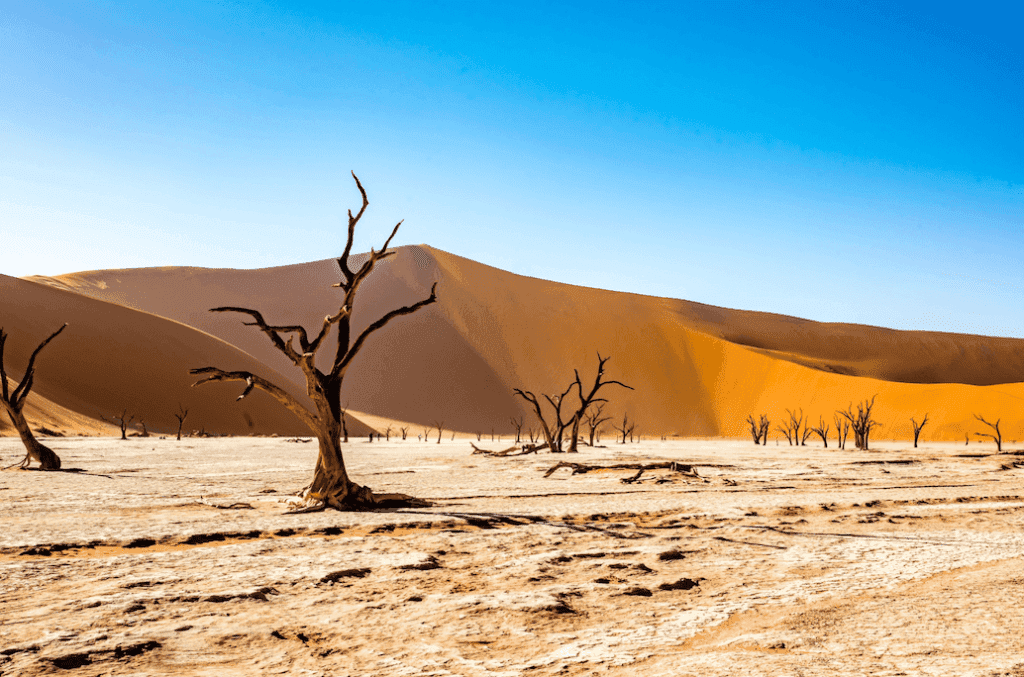The 16th United Nations Conference on Desertification (COP16) brings together 196 countries and the European Union in Saudi Arabia until December 13. This summit examines the urgency of the degradation of arable land, an issue amplified by human activities and climate change.
Progressive but alarming desertification
Contrary to the simplistic idea of “the advance of the desert,” desertification refers to the degradation of soils in arid, semi-arid, and dry subhumid areas. This phenomenon is visible through soil drying and loss of fertility, as explained by Anne-Marie Lézine, paleoecologist and research director at CNRS. Although the transformation of land into desert is a long process, recurring and intensified droughts accelerate this phenomenon. According to the IPCC report, these episodes, now referred to as the “new normal,” affect various regions, from Africa to the Mediterranean basin, as well as Asia and South America.
The impact of human practices
Intensive agriculture, overgrazing, and inappropriate farming methods significantly contribute to this degradation. In the Sahel region of Africa, for example, overgrazing depletes soils and makes them vulnerable to erosion, while in countries like Spain or Chile, excessive irrigation for agricultural production drains water resources and threatens ecosystems. The tragedy of the Aral Sea illustrates this phenomenon well: massive diversions of rivers for cotton crops have led to the near-disappearance of this lake, leaving behind a sterile saline desert.
An ecological vicious circle
Desertification creates negative feedback loops. Depleted soils trap less carbon, which exacerbates greenhouse gas emissions and, in turn, global warming. The latter intensifies droughts and extreme weather events, further increasing the fragility of ecosystems.
What solutions?
Initiatives such as the “Great Green Wall” project in the Sahel aim to restore and protect vegetation cover to enhance soil resilience against droughts. However, coordinated global efforts are necessary to limit destructive agricultural practices, preserve water resources, and reduce the ecological footprint of human activities.
COP16 highlights these critical issues and calls on the international community to act to curb this process, which jeopardizes food security and the living conditions of millions of people.
With francetvinfo.fr


